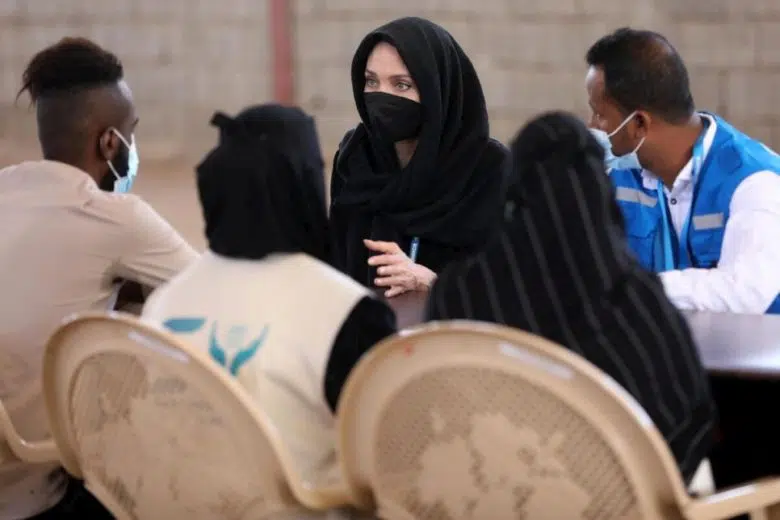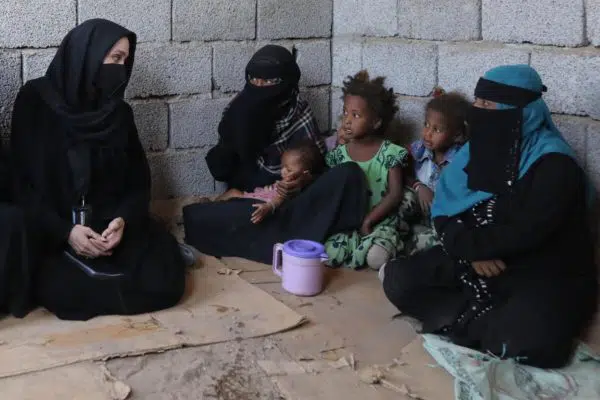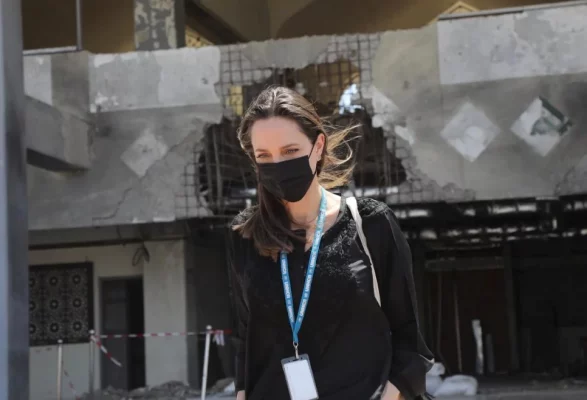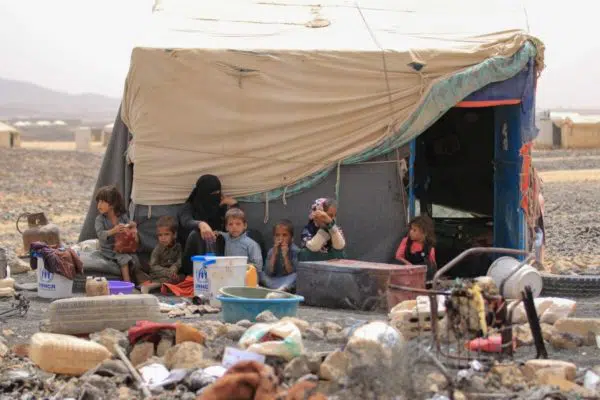
UNHCR Special Envoy Angelina Jolie meets refugees from Somalia near Aden in Yemen. © UNHCR/Marwan Tahtah
Ten days ago, I was in Yemen to meet some of the four million people displaced by the conflict.
I visited one informal settlement that was home to 130 families. Only 20 of them receiving any food aid at all – and then, it was only when funding is available.
I visited a makeshift school, it was made up of five small, dark rooms. The children sitting on the floor and they hadn’t eaten. Nor had the teacher. She is a volunteer, and she told me she walked for at least an hour each day to get to that remote place, to try to give the kids some hope for a future. Because they have nothing. No food. No pens. No desks. No school books. No salary for the teacher. Thirteen-year-olds were sitting next to 3-year-olds, striving to learn to read and write, in a hope for a future that they may never see.
I visited another site where displaced families live in flimsy shelters, with no income and no food at all. Miles away from any water or sanitation. There are no toilets, no showers. And there was no school, and most of the children, because of years of conflict, were illiterate. Many young girls being married off, perhaps to spare the family another mouth to feed, or to receive a dowry that might help the other children in the family to survive.
I met a mother who had lost three of her children to preventable illnesses. Her son was now sick and in the hospital. Even if the hospital has medicine to treat him – which most don’t – she won’t no money to pay for it.
This is the reality of an aid appeal that is drastically under-funded, amid a conflict that has gone on for so many years without political solutions.
So let us be clear. As we all know, we cannot point to anywhere in the world where we’re succeeding in deterring aggression or reducing the number of people forced to flee their homes.
Last year, UN humanitarian programmes were only half funded, and this year we are facing unprecedented needs. Needs that were rising globally even before the effects of the devasting war in Ukraine.
The UNHCR appeal in Yemen itself is only 9 per cent funded. And on top of its own suffering, Yemen is hosting over 100,000 refugees from Somalia, Syria, Ethiopia, among other countries, without any support.
So, it is heart breaking. It is infuriating. And above all, because this is a man-made crisis that must be ended.
We all know that aid relief without political solutions does not work. The two have to go hand in hand, always.
There is nothing more important for Yemen than to end the conflict: so that the people have a chance of living in safety and dignity, not dependent on aid – which no country or people ever wish to have to rely on.
The next pledging conference should be about helping the people of Yemen to rebuild and develop their country, not just about meeting a percentage of an aid appeal to help only a fraction of millions of people in desperate need not to die of hunger and preventable illness. But that is where we’re at now.
The lack of solutions to conflict and insecurity globally is causing unmanageable levels of human displacement and need and stretching humanitarian relief to the point that we see in Yemen today.
You have an opportunity as governments to address this desperate human emergency and to seek an urgent end to the conflict.
I hope you will take it. I implore you to do so, on behalf of the people of Yemen, of the families I met.
Thank you for your time. Please, do what you can.
Originally published by UNHCR on 16 March 2021.





